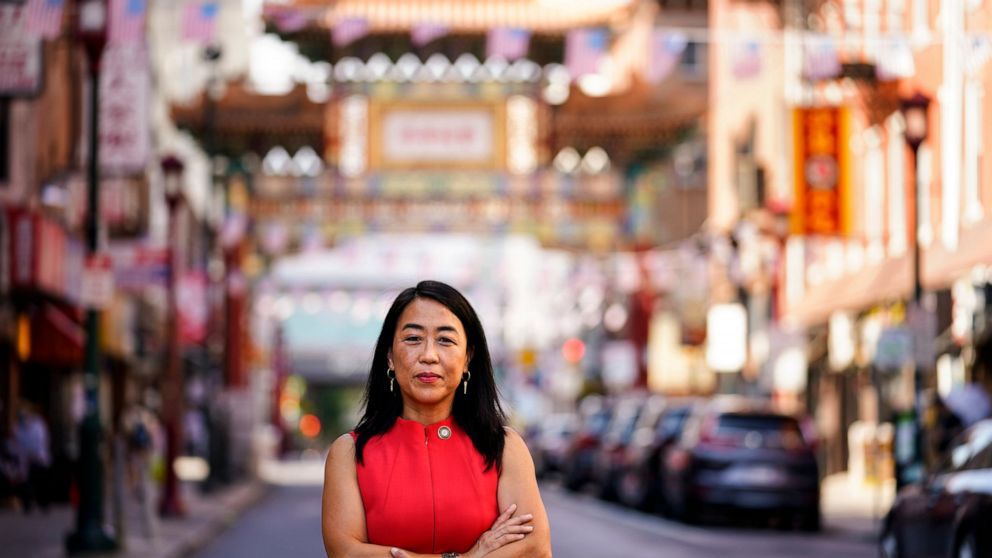PHILADELPHIA — Wei Chen wants people who visit Philadelphia’s Chinatown to see past the amber-colored roast ducks hanging in a restaurant window and notice the two older women chatting in Mandarin on the steps to the apartments above.
“These apartments are full of people who are low-income, who are elderly people, and people who are new immigrants,” said Chen, the community engagement director for Asian Americans United. “You have to think about how Chinatown was created. We weren’t welcome in other neighborhoods.”
Chen, along with other organizers and members of Chinatown, said they were surprised by the Philadelphia 76ers’ announcement Thursday of a proposal to build a $1.3 billion arena just a block from the community’s gateway arch. They said neither the organization nor the property owner reached out for community input before the announcement.
A spokesperson for 76 Devcorp, the development company behind the arena, said in an emailed statement that the process is in its early stages — years from “anything changing” — and that the company planned to work with the community to help shape the project and ensure it’s “done right.”
“We are very sensitive to the Chinatown community’s concern in light of prior Center City proposals and are committed to listening to and working with the community in a way that hasn’t happened before,” the statement read.
But those are promises many in Chinatown have heard before. After decades of developments — like the Pennsylvania Convention Center, which took homes from 200 families; Interstate 676, also known as the Vine Street Expressway, which threatened to cut off parts of the community; and proposals for a jail, a casino and another sports facility — that all were beaten back by the community, residents have a deep playbook of their own to choose from.
Across the country, there are fewer than 50 Chinatowns, some more vibrant and larger than others. Many took root in areas of cities that were thought of as red light districts. And as cities grew and changed around those communities, many Chinatowns have been under threat from gentrification or development.
Like others, the community in Philadelphia is just bouncing back after losing business during the pandemic, when Chinatown’s restaurants were shuttered for dining-in. Much of the senior population didn’t want to leave the neighborhood because of the fourfold increase since 2019 in hate crimes against people of Asian…
Click Here to Read the Full Original Article at ABC News: Business…

